
Speakers
Prof. Yasuhiko Tabata, Kyoto University, Japan
Yasuhiko Tabata is the Professor of laboratory of Biomaterials at the Institute for Frontier Life and Medical Sciences, Kyoto University and serves as adjunctive professor at 17 different universities. He received his BD in Polymer Chemistry (1981), Ph.D. (1988) in Technology, D.Med.Sc. (2002), and D.Pharm. (2003) all at Kyoto University. He has published 1,630 scientific papers including 145 book chapters and review articles, and has 130 patents. He received the Young Investigator Award (1990), the Scientific Award from the Japanese Society for Biomaterials (2002), the Scientific Award from the Japan Society of Drug Delivery System (2011), Chandra P. Sharma Award of the International Society of Biomaterials & Artificial Organs (2011), the Scientific Award from the Japanese Society for Regenerative Medicine (2014), Merit Award Winners for Industry-Academia-Government Collaboration, President of Science Council of Japan Award (2016), Outstanding Scientist Award of TERMIS-AP (2018), and several awards. Dr. Tabata is the council member of 5 Japanese Academic Societies or an associate member of the Science Council of Japan, Cabinet Office and the Editorial Board of 7 scientific journals.
Prof. Gary Bowlin, University of Memphis, USA
Dr. Bowlin is a Professor and Herbert Herff Chair of Excellence at The University of Memphis in the Department of Biomedical Engineering. Dr. Bowlin’s collaborative research focuses on the application of electrospun templates for tissue regenerative applications. Dr. Bowlin’s laboratory has published extensively with over 155 peer-reviewed manuscripts. Google Scholar data shows his group’s published works have been cited over 22,500 times (H-index of 64). Dr. Bowlin has been granted 17 U.S. Patents and over 150 foreign patents. These patents have helped to start five different companies and several commercially available and regulatory agencies cleared products. The latest company, Sweetbio, Inc., is Memphis based and commercializing a honey-based wound healing dressing, APIS®. He is a Fellow in the National Academy of Inventors and American Institute for Medical and Biological Engineering. In addition, he is the Inaugural and current President of the International Society for Biomedical Polymers and Polymeric Biomaterials and Treasurer for the International Society for Applied Cardiovascular Biology.
Prof. Xiumei MO, Donghua University, China
Dr. Xiumei MO is a professor of Biomaterials in Donghua University. She once had two years Postdoc experience in Kyoto University, three years research fellow experience in National University of Singapore, one year visiting professor experience in Aachen University of Applied Science and Technology. In Donghua University she was granted 28 projects related with nanofiber fabrication for different tissue regeneration and hydrogel as tissue adhesive. She has published more than 300 peer-reviewed journal papers. 3 books, 5 book chapters, ISI Web of Science showed that she ranking No.7 in the world on electrospun nanofiber publication. She got the Science Technical Invention Awards from Shanghai Municipality in 2008,Science and Technology Progress Awards from State Department of People’s Republic of China in 2009, Nature Science Awards from Shanghai Government in 2015. She is the committee members of China Biomaterials Society as well as Biomedical Engineering Society Biomaterials Branch.
Associate Prof. Gareth R. Williams, University College London,
Gareth received a MChem (Hons) degree from the University of Oxford in 2002. He remained in Oxford for a DPhil (PhD), which was completed in 2005. He then worked as a post-doctoral researcher and in science program management. In September 2010 he joined London Metropolitan University as a Senior Lecturer in Pharmaceutical Science, and in November 2012 was appointed to the UCL School of Pharmacy as a Lecturer in Pharmaceutics. He was promoted to Associate Professor in 2016 and to full Professor in 2020, when he also became Head of Pharmaceutics. Gareth leads a group of around 20 researchers applying inorganic and polymer-based nanomaterials to overcome drug delivery challenges.
Prof. Urszula Stachewicz, AGH University of Krakow, Poland
Urszula Stachewicz is a professor in material science at AGH University of Krakow in Poland. She graduated from the Delft University of Technology with PhD in electrohydrodynamic of liquids to use electrospray as an on-demand deposition method, with research performed at Philips Research Laboratories in Eindhoven, the Netherlands. She conducted postdoctoral research at Queen Mary, University of London (UK) and work at spin-out company Nanoforce Technology Ltd. in polymer science and electrospun fibers. In 2018 she was a Visiting Fellow at the University of Cambridge in the Department of Materials Science and Metallurgy, UK. Her research is focused on electrospun fibers' surface properties for biomedical and water and energy harvesting and in situ mechanical testing of synthetic and naturally structured materials. She developed advanced 3D tomography protocols using focus ion beam and scanning electron microscopy (FIB-SEM) for nanofibrous biomaterials and membranes. In 2020, she has been awarded with the ERC starting grant. More information can be found at https://fibers.agh.edu.pl/group/
Dr. Muhammad Shafiq, Innovation Center of NanoMedicine (iCONM), Japan
Dr. Muhammad Shafiq is a Research Scientist at Innovation Center of NanoMedicine (iCONM), Kawasaki Institute of Industrial Promotion, Kawasaki, Japan. He received his PhD in Biomedical Engineering from Korea Institute of Science & Technology (KIST), Seoul, Korea in 2018 and postdoctoral training from Kyushu University, Japan as a JSPS Postdoctoral Research Fellow in 2023. His research interests include but not limited to functional polymer synthesis and modification, active soft mater, micro/nanofabrication, and nanomedicines for regenerative medicine and tissue engineering (TE) applications. He has synthesized mechano-elastic polymers-based stem cell recruiting biomaterials for in situ regeneration of small-diameter blood vessels, infarcted heart repair, and nerve regeneration. His current research includes the design and development of amphiphilic polymers for drug delivery systems (DDS). He has published about 75 peer-reviewed scientific papers, 3 invited book chapters, and 3 patents. He has completed 3 projects and has won Academic Excellence Award from KIST, Korea and Grand Prize from the University of Science & Technology (UST), South Korea, and
Prof. Yaopeng Zhang, Donghua University, China
Professor Yaopeng Zhang is a Professor at the State Key Laboratory for Modification of Chemical Fibers and Polymer Materials at Donghua University (DHU), China. He received his PhD in Materials Science from DHU in 2002. From 2004 to 2007, Dr Zhang was a postdoctoral research fellow at the Kawamura Institute of Chemical Research Japan. He was a visiting scholar at Akita University, Japan and Stony Brook University, USA, respectively. His current research is silk materials for biomedical and bioelectronic applications. He has been the China Textile Academic Research Leader (2021), Shanghai Academic leader(2020), Shanghai Dawn Talent (2015), Shanghai Rising-Star (2012). Prof. Zhang received the Young Scholar of Qian Baojun Fiber Award (2021), the second prize of the China Medical Science and Technology Award (2021), the first prize of Shanghai Medical Science and Technology Award (2020), and the second prize of the Huaxia Medical Science and Technology Award (2019).
Prof. Wenguo Cui, Ruijin Hospital, China
Wenguo Cui is a full professor at Ruijin Hospital, Shanghai Jiao Tong University School of Medicine. His scientific interests are focused on the development of novel biomaterials and nanomaterials for tissue regeneration, drug delivery and disease treatment. As the corresponding author, he has published more than 150 papers in Adv Mater, Sic Transl Med, Sic Adv, etc. (H = 67, Citation > 15,000), more than 40 patents (13 patents have been converted), and presided over more than 10 national key projects, and provincial and ministerial projects. Currently, he is a Fellow of the Royal Society of Chemistry (FRSC) and Fellow of Chinese Society of Biomaterials (FCSB).
Prof. Insup Noh, Seoul National University of Science and Technology, Korea
Prof. Xiangyang Shi, Donghua University, China
Prof. Won Jong Kim, Pohang University of Science and Technology, Korea
Professor Won Jong Kim earned his Bachelor of Science (BSc) degree from Hanyang University in Seoul, Korea, in 1998. He then pursued his Master of Science (M.S.) and Doctor of Philosophy (Ph.D.) degrees in Biomolecular Engineering at the Tokyo Institute of Technology, completing them in 2004. During his graduate studies, he worked under the guidance of Professors T. Akaike and A. Maruyama, where he developed a polymer-mediated DNA detection system. Following his doctoral studies, Dr. Kim served as a postdoctoral fellow at the University of Utah from 2004 to 2007, working under the supervision of Professor Sung Wan Kim. Currently, he holds the esteemed position of Mueunjae Chaired Professor at the Department of Chemistry in POSTECH. Dr. Kim's significant contributions to his field have been recognized through the publication of over 170 peer-reviewed articles in esteemed journals such as Nature BME, Nature Comm, Angew Chem, Adv. Mat., ACS Nano, Nano Lett, Small, Biomaterials, and Journal of Controlled Release during his 15 years as a faculty member at POSTECH. Additionally, he has been invited to give more than 80 talks and lectures at national and international conferences and universities. In recognition of his outstanding achievements, Dr. Kim has received several prestigious awards, including the KCS-Wiley Young Chemist Award in 2011, the Wiley-PSK Journal of Polymer Science Young Scientist Award in 2012, the KCS-Award for the Advancement of Science in 2014, and the PSK-Mid-career Researcher Academy Award in 2015. Furthermore, Dr. Kim serves as an Associate Editor for "Biomaterials Science" and the newly launched journal "Nanotheranostics", and he is also an editorial member of "Materials Today Chemistry"
Prof. Elżbieta Pamuła, AGH University of Krakow, Poland
Elżbieta Pamuła is a full professor in biomaterials engineering at the AGH University of Science and Technology in Kraków, Poland. She has double degree in materials science and chemical technology and after earned PhD, DSc and professorship in materials science. She was appointed as a postdoctoral researcher at UCL, Louvain-la-Neuve, Belgium, and as a visiting professor at the Sydney University. Her research group interests are mainly focused on polymers processing into drug delivery systems, injectable and implantable bone substitutes, and surface modification of biomaterials. She has published >150 JCR listed papers, 1 monograph, 14 book chapters and 10 patents. She was a Vice-Chair of 27th ESB Conference in 2015 and 4th ICBPPB Conference in 2018, both organized in Kraków. She has been the chair the Annual Conference of the Polish Society for Biomaterials “Biomaterials in Medicine and Veterinary Medicine” (organized since 1990). She actively participated in hundreds of international conferences on biomaterials, biomedical engineering, and materials science, where she delivered >40 invited lectures. She was a supervisor of 70 MSc, 30 Engineer, and 10 PhD students (6 other PhDs are in progress), acted as a reviewer and panel member of hundreds grant applications in Polish (NCN, NCBR) and international founding agencies including (ERC, EuroNanomed, Era-Net). In 2016 she was elected the President of Polish Society for Biomaterials and in 2023 the Council Member of the European Society for Biomaterials holding the position of Education Officer. In 2020, the International Union of Societies for Biomaterials Science and Engineering awarded Prof. Pamuła the title of Fellow Biomaterials Science and Engineering (FBSE).
Dr. Feng Chen is a professor and principal investigator (PI) of Shanghai Stomatological Hospital & School of Stomatology, Fudan University. He obtained his Ph.D from the Shanghai Jiao Tong University in 2014 and MS from Donghua University in 2008. Dr. Chen started his academic career at Shanghai Institute of Ceramic, Chinese Academic of Science in 2008, and moved to Shanghai Tenth People’s Hospital in 2018. From 2024, Dr. Chen has joined the Shanghai Stomatology Hospital Affiliated Fudan University and served as the director of the central laboratory. The aim of Chen’s research is to explore novel biomimetic materials and investigate their applications in biomedical field. His group have developed numerous techniques for the synthesis of biomimetic materials with controllable structures and functions. He has obtained more than authorized patents, and published more than 150 papers which have been cited more than 8000 times (H-index 52).
Dr. Xin Zhao, Hong Kong Polytechnic University, China
Prof. Aizheng Chen, Huaqiao University, China
Prof. Chaozong Liu, University College London, UK
Prof. João Rodrigues,Universidade da Madeira, Portugal
Prof. Santosh Aryal, Kansas State University, USA
Prof. Maria Chatzinikolaidou, University of Crete, Greece
Wen Zeng,professor,director of the department of cell biology, Army Medical University
Prof. Lu Wang, Donghua University, China
Prof. Seema Agarwal Works at University of Bayreuth as academic director and professor with research interest in synthesis of functional speciality polymers, processing methods and nanostructures. She has more than 200 peer-reviewed publications. She is Alexander von Humboldt fellow and got Hermann-Schnell award of German Chemical Society. She is the chief-editor of e-Polymers
Prof. Archana Bhaw-Luximon, University of Mauritius, Mauritius
Prof. Ng Kee Woei, Nanyang Technological University, Singapore
Prof. Tetsuji YAMAOKA, National Cerebral and Cardiovascular Center, Japan
Prof. Fuke Wang, National University of Singapore, Singapore
Prof. Minglin Ma, Cornell University, USA
Minglin Ma is a Professor at the Biological and Environmental Engineering Department of Cornell University. He received his BS degree from Tsinghua University and PhD from MIT, both in Chemical Engineering. Prior to joining Cornell in 2013, he worked as a Lead Scientist at General Electric Global Research Center and as a postdoctoral fellow in Dr. Robert Langer’s laboratories at MIT Koch Institute. His group are interested in developing advanced biomaterials for agricultural and biomedical applications with a particular focus on cell replacement therapies for type 1 diabetes.
Professor Kelvin Yeung, The University of Hong Kong, Queen Mary Hospital
For over 20 years, Kelvin Yeung has been dedicated to applied orthopaedic biomaterial research and its practical applications. His primary research interests encompass orthopedic biomaterials, antibacterial coatings, 3D bio-printing, and musculoskeletal tissue engineering. He obtained his bachelor's degree as a materials scientist and later pursued his master's degree and Ph.D. as an orthopaedic scientist at the HKU Medical Faculty.
Currently, he holds the position of tenured full professor, Chief of Research Division, and Departmental Research and Postgraduate Advisor in the Department of Orthopaedics and Traumatology at the School of Clinical Medicine, LKS Faculty of Medicine, The University of Hong Kong. Additionally, he serves as the Director of the Research Laboratory of Orthopaedic Centre and Deputy Director of the Shenzhen Key Laboratory for Innovative Technology in Orthopaedic Trauma at The University of Hong Kong Shenzhen Hospital. With the h-index 74 (Scopus) with 18,296 citations and 81 (Google Scholar) with 21,835 citations and i10-index 247, he has been consistently ranked among the Top 1% of scientists worldwide in the biomaterials field by Clarivate Analytics' Essential Science Indicators (ESI) from 2014 to 2022. In 2023, he was ranked #1926 globally and #486 in China for materials science by Research.com. Yeung has published over 290 peer-reviewed SCI journal articles and filed 41 full patents across various countries. He also co-founded OrthoSmart Limited with two senior colleagues to apply their research findings clinically and has consulted for several medical device and biomaterial companies.
Throughout his career, Yeung has participated in numerous local and regional competitions, earning several awards and scholarships such as the Young Scientist Award in 2005, the Young Engineer Award in 2009, and the Faculty Research Output Award in 2019. As a principal or co-principal investigator, he has secured over HK$86,200,000 in funding for his projects. A strong advocate for diversity, equity, and inclusion, Yeung has trained 7 postdocs, 30 Ph.D. students, 19 MS students, and 4 FYP undergraduate students in research, with over 50% being female, African, or from Middle Eastern countries. He has also received 20 prizes and awards from local and international events and has been invited to present more than 80 plenary lectures, keynotes, or invited talks at conferences worldwide.
An active member of local and international academic organizations, Yeung has held several executive positions. He currently serves as the Associate Editor of the Bioactive Materials Journal (2022 Impact factor: 18.900, Ranking: 1/45 in materials science for Biomaterials), Secretary and founding member of the Chinese Association for Biomaterials (CAB), Chair of Orthopaedic Biomaterials for the Society for Biomaterials (SFB) USA, and has previously held positions as the Treasurer of CAB and Vice-Chair of SFB Orthopaedic Biomaterials. Moreover, he has been appointed as the Warden of HKU Simon K. Y. Lee Hall, where he is responsible for overseeing student education development.
Prof. Zhen Gu, Zhejiang University, China
Dr. Zhen Gu is a Qiushi Distinguished Chair Professor and Dean of College of Pharmaceutical Sciences at Zhejiang University. He also serves as the Director of the National Key Laboratory of the Advanced Drug Delivery and Release Systems. Dr. Gu received his B.S. degree in Chemistry and M.S. degree in Polymer Chemistry and Physics from Nanjing University. In 2010, he obtained Ph.D. from the Department of Chemical and Biomolecular Engineering at UCLA. He was a Postdoctoral Associate working with Dr. Robert Langer at MIT and Harvard Medical School during 2010 to 2012. Before he moved to Zhejiang University in 2020, he was a Full Professor in the Department of Bioengineering and Director of the NIH Biotechnology Training in Biomedical Sciences and Engineering Program at UCLA. From 2012 to 2018, he was working in the Joint Department of Biomedical Engineering at the University of North Carolina at Chapel Hill and North Carolina State University, where he had been appointed as a Jackson Family Distinguished Professor. Dr. Gu's group studies controlled drug delivery, biomaterials and cell therapy. He has published over 300 research papers and applied over 200 patents. He is the recipient of the Felix Franks Medal of the Royal Society of Chemistry (2020), Young Investigator Award of Controlled Release Society (2017), Sloan Research Fellowship (2016) and Pathway Award of the American Diabetes Association (2015). MIT Technology Review listed him in 2015 as one of the top innovators under the age of 35. He was elected to the College of Fellows of the American Institute for Medical and Biological Engineering (AIMBE) in 2019 and the International Academy of Medical and Biological Engineering (IAMBE) in 2021.
Prof. Hiroyuki Ijima, Kyushu University, Japan
Dr. Hiroyuki Ijima is a professor in the Department of Chemical Engineering at Kyushu University. He received his PhD at Kyushu University (1995). He has been in his current position since 2013 after working as a visiting scientist at the Massachusetts Institute of Technology (2001-2002). He has published extensively with over 160 peer-reviewed manuscripts. He has received awards from The Society of Chemical Engineers, Japan, Japanese Society for Artificial Organs, The Society for Biotechnology, Japan, and others. He is developing bioartificial organs based on chemical engineering, and has remarkable achievements in the development of artificial livers that combine device engineering and organoid formation technology. Furthermore, in addition to these technologies, he is actively developing applications that combine the functionalization and shaping of biomaterials.
Dr. Sun Yang, Principal Scientist and Founder of Corliber (Shenzhen) Medical Device Co., Ltd., Shenzhen, China
Dr. Sun Yang is the Principal Scientist and Founder of Corliber (Shenzhen) Medical Device Co., Ltd. Dr. Sun obtained his bachelor’s degree in Materials Science and Engineering (MSE) from Shanghai Jiao Tong University and PhD degree in MSE from National University of Singapore. His research expertise lies in polymer nanocomposites and he is especially interested in polylactide-based biomaterials synthesis and application in medical field. In order to make the best of his materials knowledge in clinical-engineering translation, Dr. Sun founded Corliber company in Shenzhen in 2016, which has developed a whole supply loop from medical-grade polylactide family raw materials manufacturing to regenerative medical implants application. Dr. Sun led the development of GAIABONE regenerative bone graft and HercuRegen regenerative internal fixation materials, and these material-based innovative medical implants have been approved by FDA and NMPA. Besides, Dr. Sun established collaboration projects with universities and hospitals across China to systematically reveal the effectiveness and mechanisms of the regeneration capability of his materials and implants. Dr. Sun and his collaborators have shed light on osteo-inductive biomaterials that could profoundly support regenerative repair for patients and will become one of the most powerful competitors in biomaterials across the world.
Associate Professor Yufei Ma, Xi’an Jiaotong University, China
Dr. Yufei Ma is an associate professor of the School of Life Science and Technology at the Xi’an Jiaotong University (XJTU), China. She obtained her PhD at Tsinghua University, China in 2014 before joining XJTU. During 2016−2017, she worked as a research fellow at Harvard Medical School and VA Boston Healthcare System. Her current research focuses on cell mechanical microenvironment engineering and mechanomedicine for soft tissue regeneration. She has published > 40 papers in Adv Mater, Adv Funct Mater (3), Small (2), Small Methods, NPG Asia Mater, etc. She has been selected in Young Elite Scientists Sponsorship Program by China Association for Science and Technology (2018) and World top 2% Scientists at field of the biomedical engineering (2023). Now she serves as a committee member of Chinese Society for Biomaterials and China Association of Medical Equipment.
Professor Tong Wu, Qingdao University, China
Tong Wu received her Ph.D. in Biomaterials Science from Donghua University in 2018 with Prof. Xiumei Mo. She worked in Prof. Younan Xia’s group at Georgia Institute of Technology from 2016 as a jointly-supervised Ph.D. candidate and then as a postdoctoral fellow until the end of 2019. She is now working as a professor at Qingdao Medical College, Qingdao University. She has obtained the Young Elite Scientists Sponsorship Program from the CAST and Taishan Scholars Project of Shandong Province. Her research interests include the development of novel nanomaterials for biomedical, environmental, and energy-related applications.
Prof. Min Wang. The University of Hong Kong, Hong Kong, China
Min Wang is a full professor at The University of Hong Kong (HKU) since 2008. He served as Programme Director of HKU’s interfaculty Medical Engineering Programme in 2013-2018 and is currently a member of HKU’s Senate. For his achievements/contributions, he is elected a fellow of several professional societies (FIMMM, 2001; FIMechE, 2007; FHKIE, 2010; FBSE, 2011; FAIMBE, 2012; WAC Academician, 2013; FRSC, 2020; FCSBM, 2023). His research interests include biomedical materials, tissue engineering, controlled release, and bionanotechnology. Dr.Wang is the Series Editor of Springer Series in Biomaterials Science and Engineering (http://www.springer.com/series/10955) and Editor or Associate Editor of several journals (e.g., Progress in Materials Science). He also served/serves in the Editorial Board of over 20 international journals. He was/is an elected Council Member of Chinese Society for Biomaterials, World Association for Chinese Biomedical Engineers, International Federation for Medical and Biological Engineering, etc. Currently, he is a member of the Steering Committee and Treasurer of IUSBSE’s International College of Fellows.
Prof. Zhengwei You Donghua University, China
Dr. Zhengwei You is a full professor and the Chair of the Department of Composite Materials at Donghua University. He serves as the Vice chairman of Biomaterials Advanced Manufacturing Branch of Chinese Society of Biomaterials. He received his degrees of B.S. from Shanghai Jiao Tong University and Ph.D. from Shanghai Institute of Organic Chemistry, Chinese Academy of Sciences. He conducted his postdoctoral research at Georgia Institute of Technology and University of Pittsburgh. Prior to joining Donghua University in 2013, he was an innovation manager in Bayer MaterialScience. His current research involves smart polymers, elastomers, 3D printing, biomaterials, and elastic electronics. He has published more than 70 peer-reviewed papers as the corresponding author in the journals such as Nature Medicine, Nature Communication (3 papers), Advanced Materials (6 papers) and holds 35 granted patents. He won 2022 Shanghai Top ten Youth Science and Technology Outstanding Contribution Award and was elected as a Shanghai leading talent (2022).
Professor Jun Li, National University of Singapore, Republic of Singapore
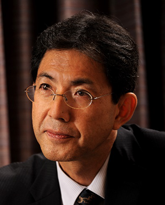
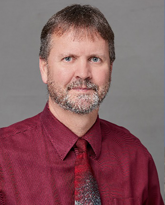
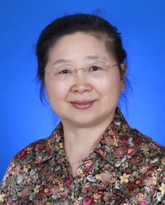
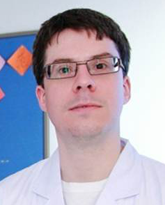
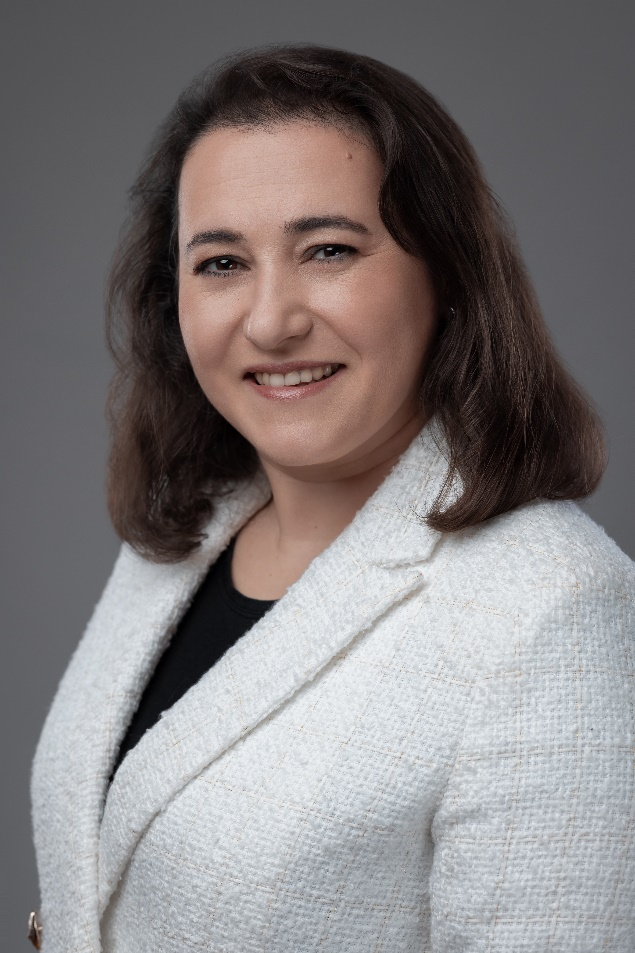
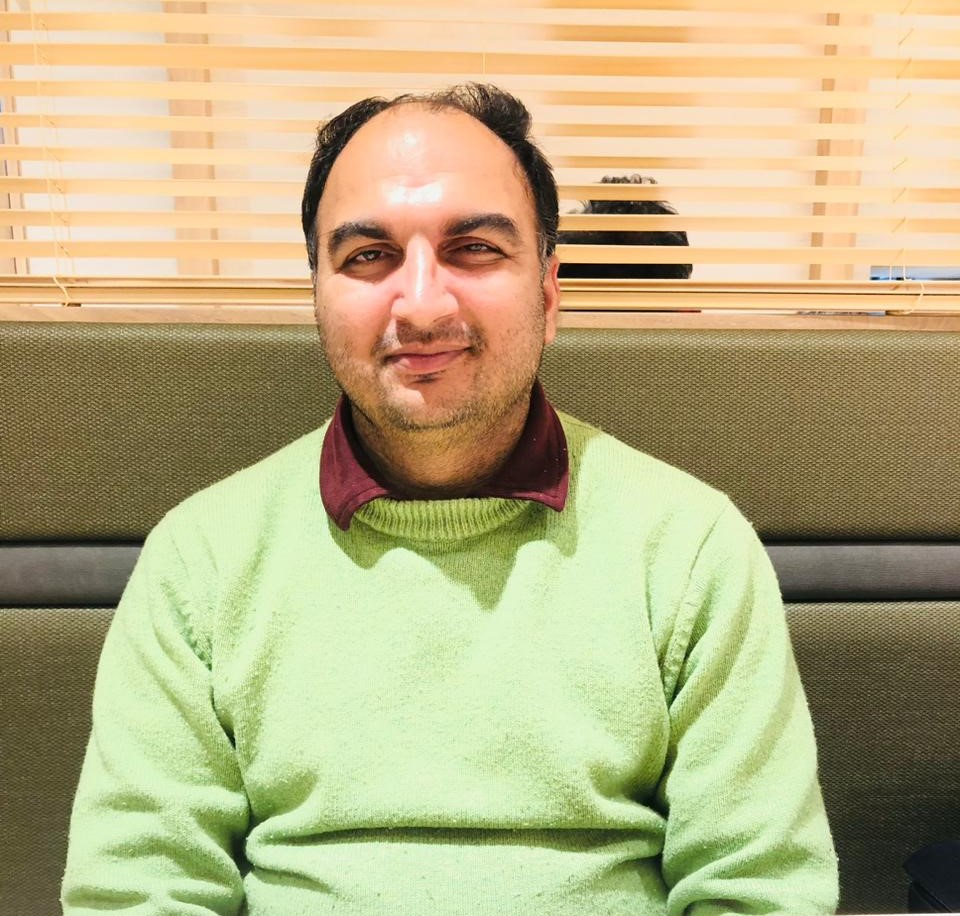
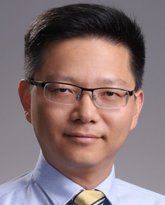
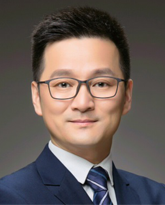
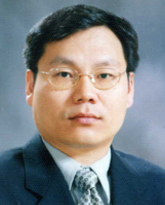
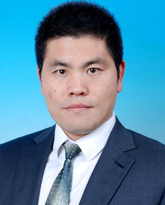 、
、
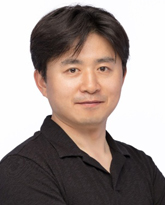
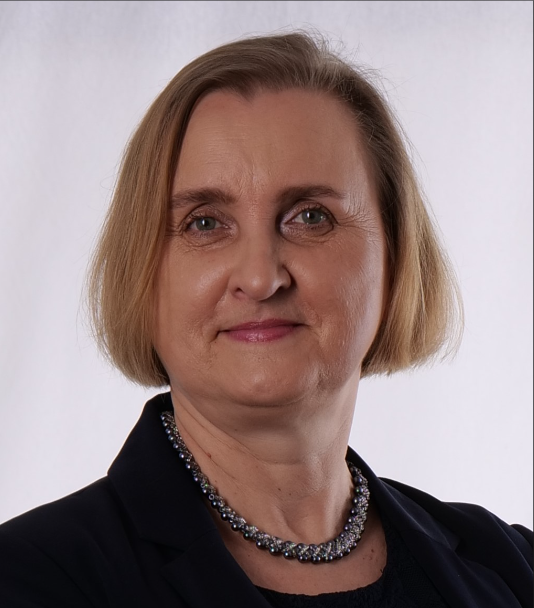
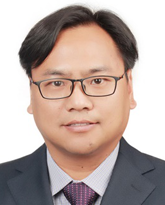
Prof. Feng Chen, Fudan University, China
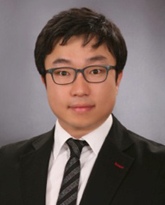
Dr. Kyung Min Park, Incheon National University, Korea
Dr. Kyung Min Park is an associate professor of the Department of Bioengineering and Nano-bioengineering at the Incheon National University, Republic of Korea. Dr. Park received his Ph.D. in the Molecular Science and Technology (MST) at Ajou University in 2012. After Ph.D., he pursued his post-doctoral training in the Chemical and Biomolecular Engineering (CHEMBE) at the Johns Hopkins University from 2012 to 2015. Finally, he joined the Incheon National University in 2015. His current research focuses on designing advanced hydrogel materials for a broad range of biomedical applications, including tissue engineering, regenerative medicine, and drug delivery as well as engineered healthy/disease models.
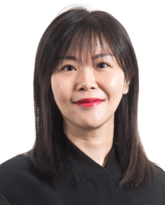
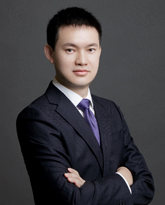
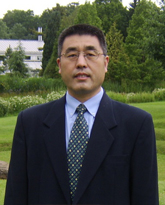
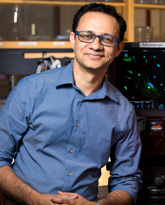
Prof. Hitesh Handa,University of Georgia, USA
Dr. Hitesh Handa is a faculty member in the School of Chemical, Materials and Biomedical Engineering at the University of Georgia. Dr. Handa's area of focus is in translational research for development of medical device coatings, wound healing materials, therapeutic nanoparticles, and microfluidic artificial lungs. This work in designing innovative materials and testing them in animal models has resulted in over 60 publications and 12 patent applications. Hitesh’s work has been funded by NIH-R01, CDC, Department of Veteran Affairs, US Army, Juvenile Diabetes Foundation, Geneva Foundation, and industrial grants. With his experience in biomolecular interactions, materials/surface science, polymeric coatings, blood-surface interactions and animal models, his goal is to bridge the gap between the engineers and clinical researchers in the field of biocompatible materials.
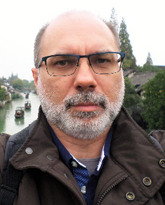
Rodrigues's primary research interests lie in the design, synthesis, and characterization of materials. Specifically, he focuses on dendrimers, inorganic nanoparticles, polymers, and natural fibers for biomedical applications. His contributions to the field include authoring 110 SCI-indexed peer-reviewed journal articles, with an h-index of 36, in prestigious high-impact journals. He has also contributed to 5 book chapters and 19 proceeding papers. Moreover, Rodrigues has delivered over 45 invited talks and participated in 65 other oral presentations worldwide."
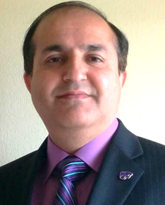

Dr. Chatzinikolaidou is actively involved in several competitive national and international projects, is author of >90 publications in international peer-reviewed journals, 4 book chapters, >180 peer-reviewed conference abstracts, and inventor of 4 patents on osteoinductive implants. She currently serves as vice president of the Hellenic Society for Biomaterials. She served as chair of the 28th Conference of the European Society for Biomaterials (ESB 2017) in Athens, and program chair of the TERMIS-EU 2019 conference in Rhodes in Greece. She is a Fellow in Biomaterials Science and Engineering (FBSE, elected 2020) of the International Union of Societies for Biomaterials Science and Engineering (IUS-BSE) and International Fellow of Tissue Engineering and Regenerative Medicine (FTERM, elected 2023).

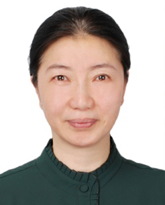
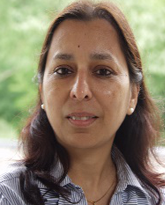
Prof. Seema Agarwal,University of Bayreuth, Germany
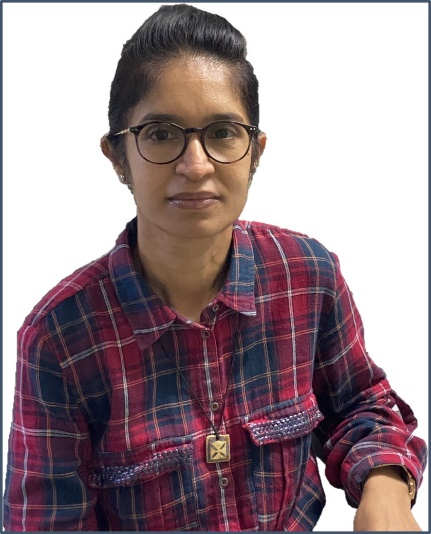
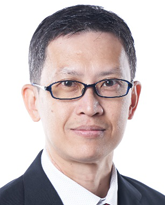
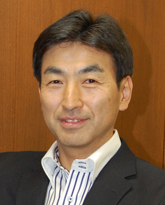
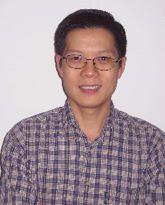
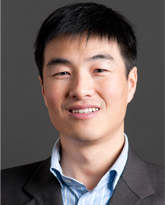
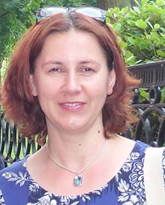
Prof. Iza Radecka, University of Silesia, Poland
Iza completed her PhD in the Department of Biochemistry, University of Silesia, Poland. She joined the University of Wolverhampton, United Kingdom in September 2000. Since then she has continued her research into the production of biodegradable polymers from bacteria. Her research is focused on the cost-effective production of novel bio-based polymeric materials from waste. Iza has published numerous research papers in highly ranked scientific journals, authored several chapters in biotechnological books. She has also given a broad number of invited lectures at international conferences. Iza successfully supervised 16 PhD students, she also teaches on a wide variety of microbiology and biotechnology courses, both undergraduate and postgraduate level where she puts her knowledge and experience to good effect.
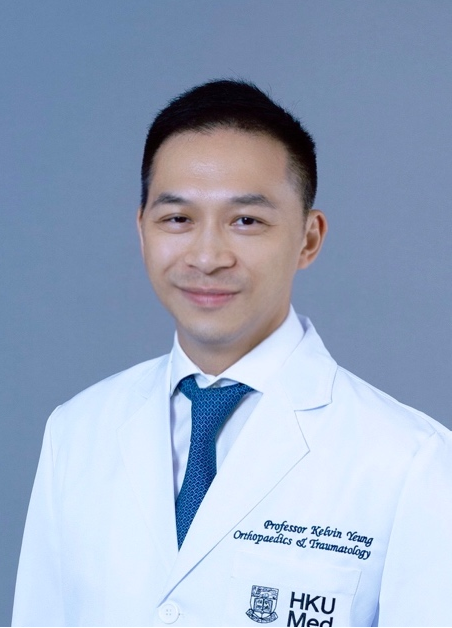

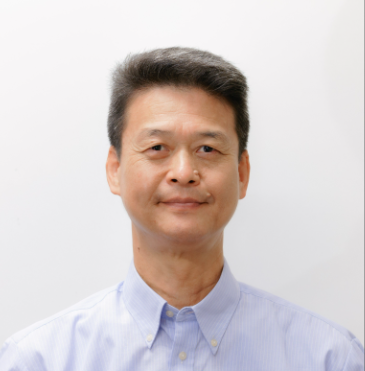
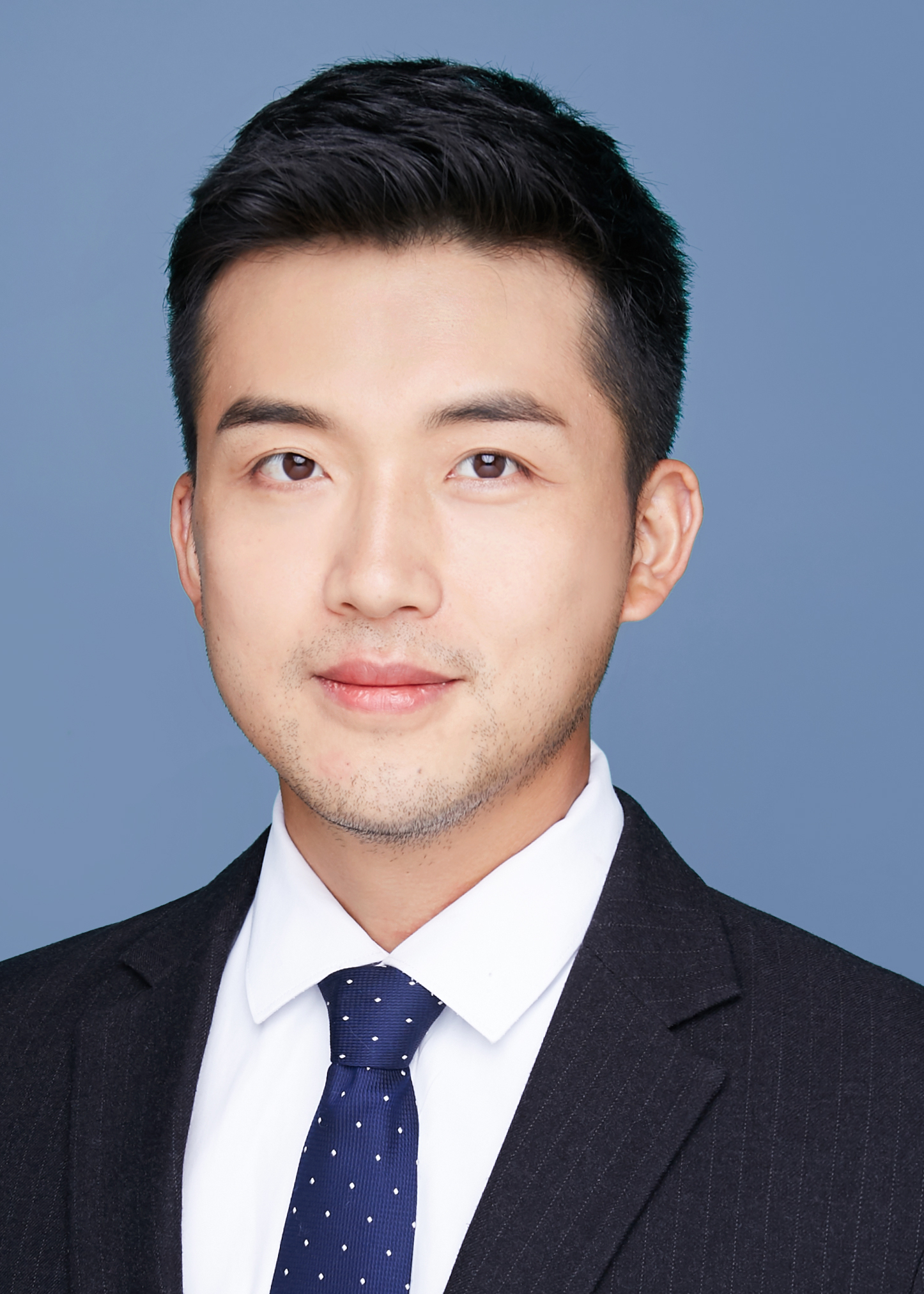
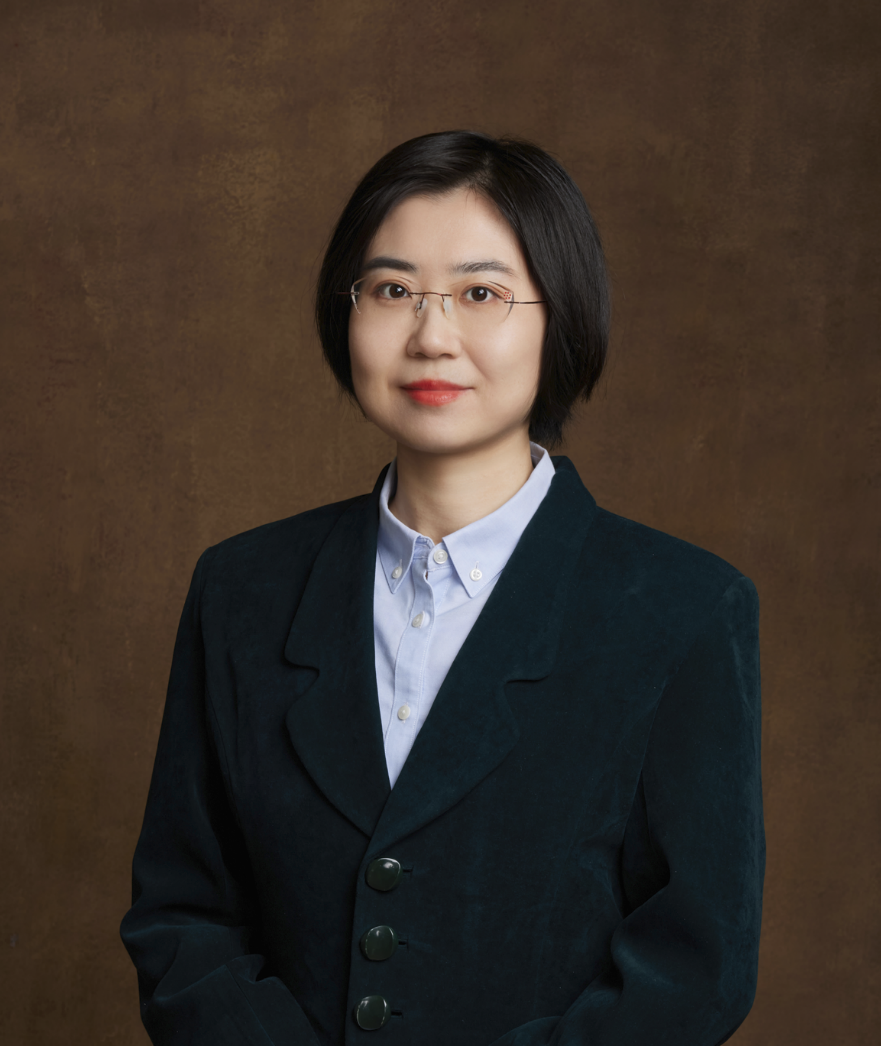
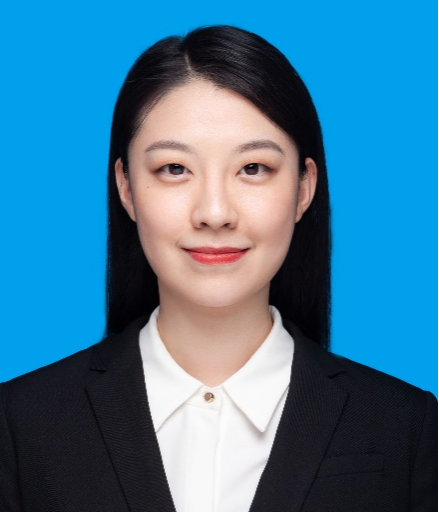
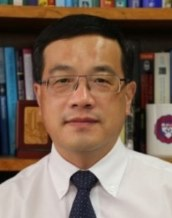
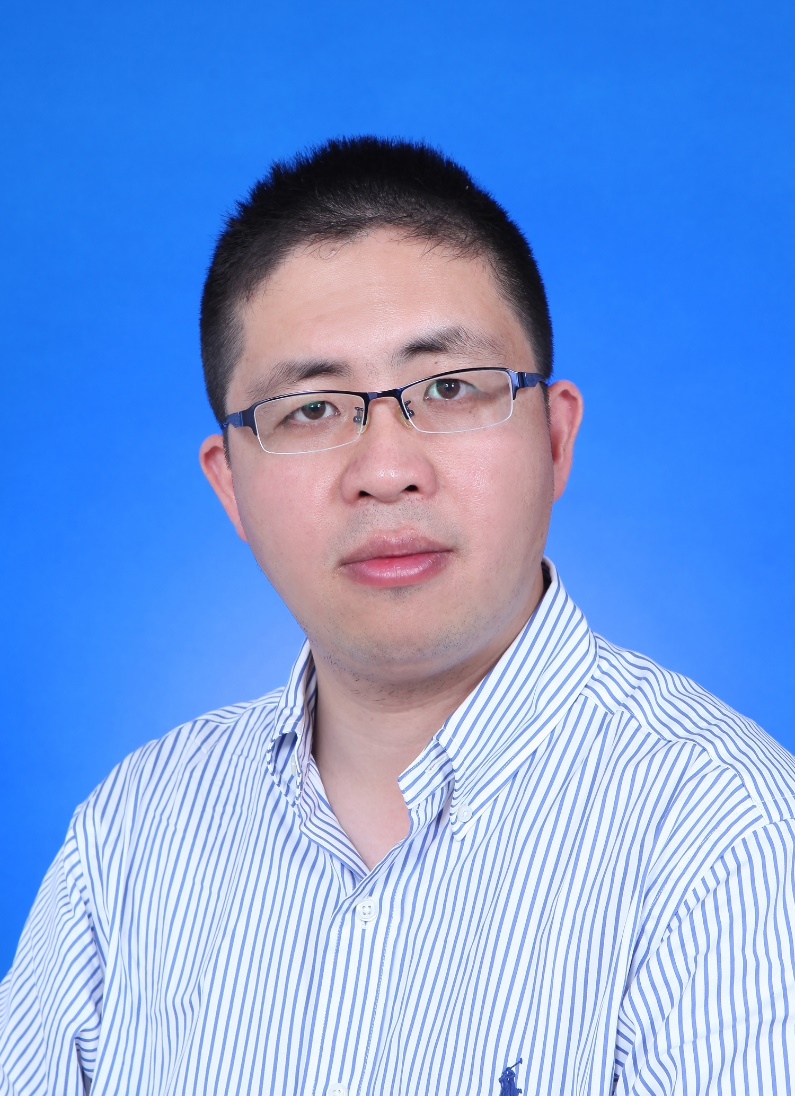
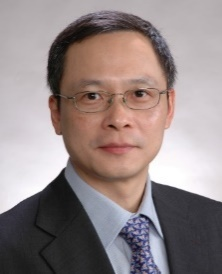
Dr Jun Li is currently a Professor at the Department of Biomedical Engineering, National University of Singapore (NUS). He is also a Principal Investigator at NUS Environmental Research Institute, NUS (Suzhou) Research Institute, and NUS (Chongqing) Research Institute. He received his MSc (1992) and PhD (1995) in macromolecular science from Osaka University, Japan. He worked as a Special Postdoctoral Researcher at the RIKEN Institute in Japan (1995 – 1998) and as a Senior Scientist at the Singapore A*STAR Institute of Materials Research and Engineering (1998 – 2022). Prof. Li’s expertise lies in synthetic and bio-based polymers and their supramolecular self-assemblies forming nanostructures for various applications, such as drug and gene delivery, tissue engineering, personal care, and environmental sustainability. To date, he has published more than 200 articles in international journals, including Nature, Nature Biomedical Engineering, Science Advances, Advanced Materials, Advanced Functional Materials, JACS, Angew Chem, Advanced Drug Delivery Reviews, and Biomaterials, which have received more than 16,000 citations with an h-index of 70. He filed 12 patents, authored a few book chapters, and edited one research book. He served chairs/cochairs for 6 international symposia/conferences on the topics of bio-based polymers, hydrogels, biomaterials, and supramolecular chemistry.
Contact
- Phone: 021-67792653
- xmm@dhu.edu.cn
Copyright 2019-2022 ICBPPB 2024 Reserved. 沪ICP备19039466号-1